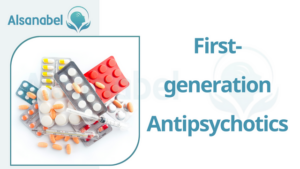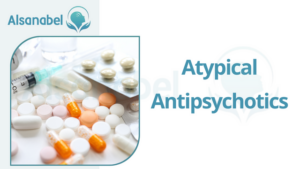Effective Medications for Schizophrenia Treatment 2023
- Category ADHD
Schizophrenia is a complex mental disorder characterized by delusions, hallucinations, disorganized thinking, and abnormal behavior. It affects about 1% of the global population and can have a profound impact on an individual’s life. While the exact cause of schizophrenia is unknown, researchers believe that a combination of genetic, environmental, and biochemical factors may contribute to its development.
Medications used in the schizophrenia treatment are known as antipsychotics. These medications work by targeting the neurotransmitters in the brain that are believed to be involved in the development of psychotic symptoms. They help to reduce the severity and frequency of delusions and hallucinations.
There are two main types of antipsychotics
- First-generation antipsychotics, such as haloperidol and chlorpromazine, have been used for many years and are effective in controlling hallucinations and delusions.
- Second-generation antipsychotics, such as risperidone and olanzapine, have been developed to address the side effects associated with first-generation antipsychotics.
First-generation Antipsychotics
First-generation antipsychotics, also known as typical antipsychotics, have been widely used in the treatment of schizophrenia for many years. These medications work by blocking dopamine receptors in the brain, specifically the D2 dopamine receptors. By blocking these receptors, first-generation antipsychotics help to reduce the excess dopamine activity that is believed to contribute to the psychotic symptoms of schizophrenia.

Commonly prescribed first-generation antipsychotic medications
There are several commonly prescribed first-generation antipsychotic medications that have shown effectiveness in managing the symptoms of schizophrenia. Some examples include:
- Haloperidol: This medication has a long history of use and is known for its effectiveness in controlling hallucinations and delusions. It is available in both oral and injectable forms.
- Chlorpromazine: Another widely used first-generation antipsychotic, chlorpromazine has been shown to be effective in reducing psychotic symptoms. It is also available in oral and injectable forms.
- Fluphenazine: This medication is often used as a long-acting injectable, providing continuous symptom relief over a longer period of time. It is particularly useful for individuals who have difficulty with medication adherence.
- Perphenazine: Perphenazine is another first-generation antipsychotic that is available in both oral and injectable forms. It has been shown to effectively reduce positive symptoms of schizophrenia.
It is important to note that while first-generation antipsychotics can be effective in managing symptoms, they often come with a higher risk of side effects compared to second-generation antipsychotics. Common side effects include drowsiness, blurred vision, muscle stiffness, and involuntary movements. It is essential for healthcare providers to closely monitor individuals taking these medications to ensure their safety and well-being.
Second-generation Antipsychotics
Second-generation antipsychotics, also known as atypical antipsychotics, have emerged as a newer class of medications for the treatment of schizophrenia. These medications offer several advantages over the first-generation antipsychotics:
- Improved tolerability: Second-generation antipsychotics tend to have a lower risk of certain side effects commonly associated with first-generation antipsychotics, such as extrapyramidal symptoms (EPS). This includes muscle stiffness, involuntary movements, and tremors, which can significantly impact the quality of life for individuals with schizophrenia.
- Broader efficacy: Second-generation antipsychotics have shown effectiveness in not only reducing positive symptoms, such as hallucinations and delusions, but also in managing negative symptoms, including social withdrawal and reduced emotional expression. This broader efficacy can contribute to improved overall functioning and quality of life for individuals with schizophrenia.
- Reduced risk of tardive dyskinesia: Tardive dyskinesia is a potentially irreversible movement disorder that can occur with long-term use of antipsychotic medications. Second-generation antipsychotics have a lower risk of causing tardive dyskinesia compared to their first-generation counterparts, offering a significant advantage in terms of long-term treatment safety.
- Lower risk of neuroleptic malignant syndrome (NMS): NMS is a rare but serious condition characterized by fever, muscle rigidity, and autonomic dysfunction. Second-generation antipsychotics have been associated with a lower risk of NMS compared to first-generation antipsychotics, enhancing their safety profile.
Popular second-generation antipsychotic medications
There are several second-generation antipsychotic medications commonly prescribed for the treatment of schizophrenia. Some examples include:
- Risperidone: Risperidone is one of the most frequently prescribed second-generation antipsychotics. It has shown effectiveness in managing positive and negative symptoms of schizophrenia and is available in both oral and injectable forms.
- Olanzapine: Olanzapine is another widely used second-generation antipsychotic that has demonstrated efficacy in reducing positive symptoms. It is also prescribed for the treatment of bipolar disorder and is available in oral and injectable formulations.
- Quetiapine: Quetiapine is commonly prescribed for schizophrenia and has also been shown to be effective in managing mood symptoms associated with bipolar disorder. It comes in a convenient once-daily extended-release formulation.
- Aripiprazole: Aripiprazole is unique among second-generation antipsychotics as it has a partial agonist activity at dopamine receptors. It has demonstrated efficacy in managing both positive and negative symptoms of schizophrenia and is available in various formulations, including oral tablets, orally disintegrating tablets, and a long-acting injectable.
Combination Therapy
Combination therapy involves the use of multiple medications to treat schizophrenia. It is often employed when a single medication does not provide sufficient symptom relief or when there is a need to target multiple aspects of the condition. The goal of combination therapy is to enhance the effectiveness of treatment and improve overall outcomes for individuals with schizophrenia.
Benefits Associated With Combination Therapy
- Enhanced symptom control: By targeting different neurotransmitter systems in the brain, combination therapy can provide more comprehensive symptom control. This can lead to a reduction in both positive symptoms, such as hallucinations and delusions, and negative symptoms, including social withdrawal and lack of motivation.
- Improved treatment response: Combination therapy may offer a higher likelihood of treatment response compared to monotherapy. This is particularly relevant for individuals who have not adequately responded to previous medication trials. By targeting multiple mechanisms of action, combination therapy can potentially overcome treatment resistance and improve outcomes.
- Reduced relapse rates: Schizophrenia is a chronic condition that requires long-term management. Combination therapy has been shown to reduce the risk of relapse compared to monotherapy. This can help individuals maintain stability and prevent the recurrence of acute psychotic episodes, leading to better overall functioning and quality of life.
Risks Associated With Combination Therapy
- Increased side effects: Combining medications can increase the risk of side effects. This is because each medication may have its own set of potential adverse effects, and the combination may result in a cumulative effect. Close monitoring is essential to manage and minimize side effects.
- Drug interactions: Different medications can interact with each other, altering their efficacy or increasing the risk of adverse effects. Healthcare providers need to carefully consider potential drug interactions when prescribing combination therapies and adjust dosages accordingly.
- Complex treatment regimens: Combination therapy often involves taking multiple medications at different times and doses. This can make treatment regimens more complex and increase the burden of medication adherence. Proper patient education and support are crucial to ensure treatment compliance.
Atypical Antipsychotics
Atypical antipsychotics are a class of medications commonly used in the treatment of schizophrenia. They differ from typical antipsychotics in their mechanism of action and side effect profile. Atypical antipsychotics work by blocking dopamine receptors in the brain, but they also have a greater impact on other neurotransmitters such as serotonin.

These medications have been found to be effective in reducing the symptoms of schizophrenia, including hallucinations, delusions, and disorganized thinking. They are also known to have a positive impact on negative symptoms, which can include a lack of motivation and social withdrawal.
Compared to typical antipsychotics, atypical antipsychotics generally have a lower risk of side effects such as extrapyramidal symptoms, which can include tremors and muscle stiffness. They are also less likely to cause tardive dyskinesia, a movement disorder that can result from long-term use of antipsychotic medications.
Notable atypical antipsychotic medications
There are several notable atypical antipsychotic medications that are commonly prescribed for the treatment of schizophrenia. These include:
- Risperidone (Risperdal): Risperidone is one of the most widely used atypical antipsychotic medications. It has been shown to be effective in reducing both positive and negative symptoms of schizophrenia.
- Olanzapine (Zyprexa): Olanzapine is another commonly prescribed atypical antipsychotic. It has been found to be effective in treating both acute episodes of schizophrenia and in preventing relapse.
- Quetiapine (Seroquel): Quetiapine is often used as a maintenance treatment for individuals with schizophrenia. It has been shown to be effective in reducing the risk of relapse and improving overall functioning.
- Aripiprazole (Abilify): Aripiprazole is unique among atypical antipsychotics as it functions as a partial dopamine agonist. It has been found to be effective in reducing symptoms of schizophrenia and has a lower risk of metabolic side effects compared to some other medications.
It is important to note that the choice of atypical antipsychotic medication should be tailored to the individual, taking into consideration their specific symptoms, medical history, and potential side effects. Regular monitoring and follow-up with healthcare providers are essential to ensure optimal treatment outcomes.
Depot Injections For Schizophrenia Treatment
Depot injections, also known as long-acting injectable antipsychotics, are an alternative method of administering medication for the treatment of schizophrenia. Unlike oral medications that need to be taken daily, depot injections are given at regular intervals, typically every two to four weeks. This can offer several benefits:
- Improved medication adherence: One of the primary advantages of depot injections is that they help improve medication adherence. People with schizophrenia may struggle with consistently taking their oral medications due to forgetfulness, cognitive impairments, or lack of insight into their illness. Depot injections ensure that the medication is administered regularly, reducing the risk of missed doses and treatment interruptions.
- Stabilized blood levels: Depot injections provide a sustained release of the medication, maintaining a consistent level of the drug in the bloodstream. This can help stabilize symptoms and prevent fluctuations that may occur with oral medications, which are absorbed and metabolized more quickly.
- Reduced relapse rates: Studies have shown that depot injections can reduce the risk of relapse in individuals with schizophrenia. The extended-release formulation ensures continuous delivery of the medication, which can help maintain symptom control and prevent exacerbation of psychotic symptoms.
- Increased convenience: For some individuals, receiving regular depot injections may be more convenient and preferable compared to daily oral medications. It eliminates the need to remember to take pills and allows for greater independence in managing their treatment.
How depot injections help improve medication adherence
Depot injections play a crucial role in improving medication adherence among individuals with schizophrenia. Here’s how they contribute to enhancing treatment compliance:
- Elimination of daily dosing: Depot injections reduce the burden of daily medication management. Rather than having to remember to take pills each day, individuals only need to visit their healthcare provider periodically for the injection.
- Overcoming cognitive challenges: Schizophrenia can cause cognitive impairments that make it difficult for individuals to remember or understand their medication regimen. Depot injections circumvent these challenges by ensuring consistent and reliable delivery of the antipsychotic medication.
- Enhanced treatment continuity: By eliminating the need for daily medication administration, depot injections help maintain consistent treatment continuity. This can minimize treatment gaps that may occur with oral medications and reduce the risk of relapse.
- Reduced stigma: Some individuals with schizophrenia may encounter stigma or discrimination associated with their medication. Using depot injections discreetly can help mitigate this, as it isn’t evident to others that they are receiving treatment.
It’s important to note that the use of depot injections should be approached on an individual basis, with consideration given to factors such as the individual’s preferences, response to previous treatments, and potential side effects. Regular monitoring and follow-up with healthcare providers are essential to ensure the effectiveness and safety of the treatment.
Adjunctive Medications
When treating schizophrenia, healthcare providers may sometimes prescribe adjunctive medications alongside antipsychotics to target specific symptoms that are not adequately controlled by the primary medication alone. These additional medications can help address a range of symptoms, such as mood disturbances, anxiety, insomnia, or movement disorders.
Examples of commonly prescribed adjunctive medications
There are several adjunctive medications that may be used in combination with antipsychotics for the management of schizophrenia. Some commonly prescribed ones include:
- AntidepressantsUsed to alleviate depressive symptoms often associated with schizophrenia.Nausea, dizziness, sexual dysfunction.
- AnxiolyticsUsed to address anxiety and promote relaxation.Drowsiness, dizziness, cognitive impairment.
- Sedative-hypnoticsPrescribed to treat insomnia and improve sleep quality.Drowsiness, next-day grogginess, dependence.
- Mood stabilizersHelps stabilize mood and reduce mood swings.Nausea, vomiting, weight gain, tremor.
- Antiparkinsonian agentsUsed to manage movement disorders caused by antipsychotics
It’s important to note that the choice of adjunctive medication will depend on the individual’s specific symptoms, treatment response, and any existing medical conditions. Healthcare providers will carefully evaluate the potential benefits and risks of adding an adjunctive medication before making a recommendation.
Adjunctive medications can play a valuable role in improving symptom management and overall quality of life for individuals with schizophrenia. However, it’s crucial to regularly review and adjust the medication regimen based on the individual’s response and any side effects that may arise. Open communication with healthcare providers is key to ensuring optimal treatment outcomes.
Personalized Medication Approach
A personalized medication approach is essential in the treatment of schizophrenia to ensure that individuals receive the most effective and appropriate treatment for their specific symptoms and needs. Schizophrenia is a complex mental illness, and the response to medication can vary greatly from person to person. By tailoring medication treatment to individual needs, healthcare providers can optimize outcomes and improve quality of life for those with schizophrenia.

Factors to consider for a personalized medication approach
When developing a personalized medication approach for schizophrenia, healthcare providers take into account various factors that can influence treatment decisions. These factors may include:
- Symptom profile: Understanding the specific symptoms experienced by the individual is crucial in determining the most appropriate medication. For example, someone with predominantly negative symptoms may require a different medication approach compared to someone with predominantly positive symptoms.
- Treatment history: Examining the individual’s previous medication trials helps healthcare providers identify patterns in treatment response and make informed decisions about future medications. This information can guide the selection of medications that have shown efficacy in similar cases, while avoiding those that have been ineffective or caused adverse reactions.
- Personal preferences and goals: Collaborative decision-making between the individual and their healthcare provider allows for the incorporation of personal preferences and goals. Factors such as medication side effects, route of administration, and treatment duration can be discussed to find a medication regimen that aligns with the individual’s priorities.
- Medical comorbidities: Considering any existing medical conditions or comorbidities is important to ensure that the chosen medication does not worsen or interact adversely with other treatments. Healthcare providers may need to adjust the medication plan accordingly to accommodate these factors.
By taking these factors into account, healthcare providers can develop a personalized medication approach that optimizes results and minimizes potential risks. Regular monitoring and open communication between the individual and their healthcare provider are crucial in assessing treatment response and making necessary adjustments along the way.
Regular medication management and consulting with healthcare professionals
Regular medication management is essential for individuals with schizophrenia. It is important to take the prescribed medication as directed and at the appropriate dosage. Skipping doses or discontinuing medication without consulting a healthcare professional can have negative consequences and may lead to a relapse in symptoms.
Consulting with healthcare professionals regularly is vital to discuss any changes in symptoms or side effects and to ensure that the medication regimen is still appropriate. Healthcare providers can monitor the individual’s response to medication, make necessary adjustments, and provide support and guidance throughout the treatment process.
It is important for individuals with schizophrenia to be actively involved in their treatment plan and to communicate openly with their healthcare provider. This includes discussing any concerns or questions about the medication, reporting any side effects promptly, and discussing any changes in symptoms or overall well-being.
By following a personalized medication approach, regularly managing medications, and consulting with healthcare professionals, individuals with schizophrenia can optimize their treatment outcomes and improve their overall quality of life.









